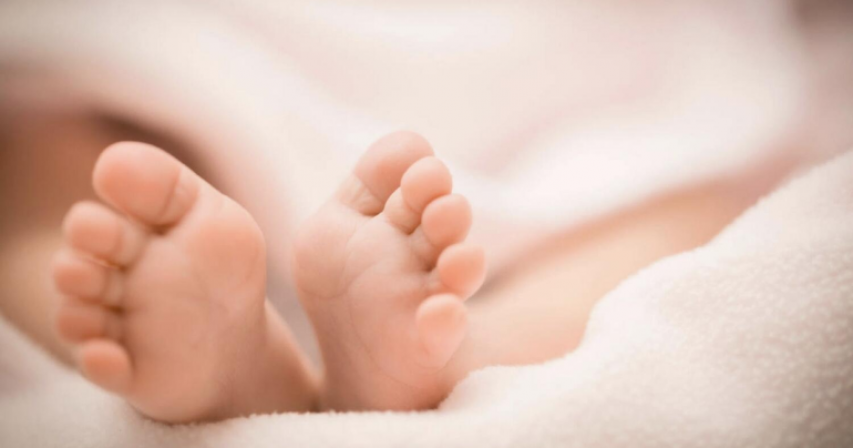Baby girl survives rare pregnancy after doctors find second foetus outside womb

A 34-year-old mother gave birth to a healthy baby girl at Medcare Hospital Sharjah after navigating a rare pregnancy complication. The condition, known as heterotopic pregnancy, involves the presence of both a normal intrauterine pregnancy and an ectopic pregnancy outside the uterus.
Dalel Khalfaoui, a Tunisian national, faced this challenge when a twisted fallopian tube was discovered late in her pregnancy. She opted for a diagnostic laparoscopic surgery seven months into her term to save her baby.
Understanding the Condition
Heterotopic pregnancy is exceptionally rare. According to Dr. Hala Al Khalidy, a specialist in obstetrics and gynecology who led the procedure, acute torsion of the fallopian tube is even rarer. Dr. Hala noted, “Khalfaoui's undiagnosed ectopic pregnancy is possibly the rarest globally, comprising only one to two percent of all ectopic pregnancies, which themselves are only one percent of normal pregnancies.”
Typically, chronic ectopic pregnancies are diagnosed by the 24th week. However, Khalfaoui’s case reached the 31st week, with only three or four similar cases recorded worldwide. Notably, those cases required open surgery, which carries higher risks. Dr. Hala remarked, “Performing the diagnostic laparoscopic surgery to identify the condition while keeping both the baby and the mother safe was a major challenge for us.”
The Patient's Journey
Khalfaoui and her husband, Achraf Amdouni, had been trying to conceive for five years with the help of medications. Their efforts paid off when Khalfaoui became pregnant, but she experienced mild pain throughout her term, which worsened significantly by the 31st week. Severe abdominal pain led her to the Emergency Room at the hospital.
Dr. Hala explained, “The pain was very severe and was a cause of concern for the health of both the mother and the baby. We involved our doctors, who were of multiple specialities, to make a differential diagnosis. But nobody could give a conclusion, and her pain was not responding to rest and painkillers.”
Despite the challenges, an MRI scan was conducted twice to determine the cause of the pain. The scans indicated only minor ovarian cysts, which were not considered major concerns. Consequently, Dr. Hala decided to perform a diagnostic laparoscopy and enlisted the help of her colleague, Dr. Mona Mohamad Saad, a consultant in gynecology.
The Surgical Procedure
Given that Khalfaoui was in her third trimester, the traditional method of laparoscopy through the umbilical region was not feasible. Dr. Hala chose to enter through a higher place in the abdominal area. “I counseled the patient to make her understand the need for this diagnostic surgery to see why there is such pain and how we can treat it,” she said. Despite the risks, the procedure was successful.
During the surgery, it was discovered that Khalfaoui’s right fallopian tube had twisted several times, becoming bloated and gangrenous due to a lack of blood supply, which contributed to her pain. The twisted fallopian tube, containing a mass, was removed laparoscopically and sent for histopathological evaluation. The results revealed it was an ectopic pregnancy, with the foetus ceasing to grow after two months of conception.
Khalfaoui expressed her fears, saying, “Learning about the twisted fallopian tube and the associated risks was incredibly frightening and disheartening for us. After struggling for so long to conceive, the thought of facing these complications and putting our baby in danger was overwhelming.”
Medical Insights
Dr. Hala explained that embryo implantation typically occurs in the narrowest portion of the fallopian tube. In heterotopic pregnancy cases, a twisted fallopian tube can significantly endanger both mother and baby by impairing the normal movement of the fertilized egg and reducing blood flow, further compromising the baby’s health.
Despite the high risks, the minimally invasive laparoscopic surgery was successful. Khalfaoui delivered a healthy baby girl weighing three kilograms. Dr. Hala concluded, “The surgery was successful, and the mother delivered a healthy baby girl weighing three kilograms.”
Khalfaoui and her husband expressed their gratitude to the medical team for their care and guidance. “We are grateful to the doctors and the medical team for their care and guidance throughout this challenging process. Their unwavering support and dedication helped us realize our dreams, bringing our baby into this world,” said Khalfaoui.
By: Sahiba Suri






Comments